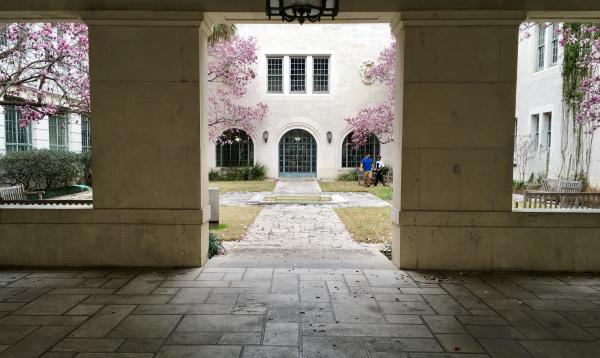Statement from Dean Addington

Putting pen to paper to share emotions at this moment is necessary and yet ineffectual. Necessary because no one should ever stand by silently when the lives of George Floyd and so many other black Americans have been treated as less worthy than those of white Americans. Ineffectual because words often carry no agency, and without agency, they are just empty rhetoric. How many times has the world reacted with sorrow and outrage in just the last year alone? What real change occurred as a result? The words, the promises over the months, years, decades, generations, and centuries ring hollow when the roots of racism hold fast.
Many of you will point to the programs, initiatives, and commitments that have been instituted to bring equity and justice to our society as evidence of action. Unquestionably, there has been some impact—there are surely individuals who had doors opened for them that were sealed shut before, or who were able to reach for opportunities that were unattainable before. Each senseless death, however, reminds us that while we have been working around the edges to temper the results of racism, we have not dug down to eradicate its pernicious and persistent core. No programs and activities, no pledges and pronouncements can hide the ugliness beneath.
What can I say that would serve as salve on the wounds of those who have suffered so much? The time has long since passed when words of comfort and support from those of us in power have any meaning or constructive value.
Yesterday, when I first saw the posting by our Undergraduate Architecture Student Council, I realized that they had effectively turned the tables. Their voice, their point of view, their anger, and their vision was the message we needed to hear, instead of yet another carefully phrased and edited statement by yet another privileged person fundamentally untouched by the daily ravages of racism.
We begin here. We begin by giving voice to those without power. We stop telling them what we think and begin listening to how they feel.
So what must we do, what must I do? We have for too long treated racism as something to be fixed in our systems, our institutions, our structures. That is where the results of racism have been encoded, where it is most visibly manifest. This is where our focus has been—outside of ourselves thereby absolving us of any real connection to racism other than to seemingly heroically step in with a few high-profile statements or initiatives. Until those of us with privilege and power realize that we are responsible for the continuing presence of racism, then nothing we do or say will turn the tide.
If we are truly committed to eradicating racism, then we need look no further than our own reflection in the mirror to determine its source. Until we look inward and face our own culpability, then racism continues to erode our society. We are the problem. I am the problem.
I know that many of you want direction from me in this time, that you want answers, solutions, and promises. I can’t offer these. I do offer to serve, and I do ask for your help as we step forward on the most difficult of challenges ever faced by our school and our nation.
We are going to stumble as we tackle this, we will make mis-steps along the way. You have already seen the recommendations from our undergraduates, and tomorrow you will see actions proposed by the School of Architecture’s Committee on Diversity + Equity. These are but an opening salvo as we must work to challenge racial injustice, address embodied privilege, and build an environment that is anti-racist.
Michelle

